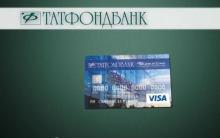Forbes named the most expensive purchases of the richest people in the world. In the first place - Abramovich
Forbes magazine named the most expensive purchases of the richest people in the world in the past year. The list was headed by Russian Roman Abramovich, who, according to the publication, bought the island of New Holland in St. Petersburg for $ 400 million. On the island, Abramovich plans to remodel 18th-century warehouses into art galleries, boutiques, hotels and restaurants. condition russian Forbes estimated at 11.2 billion dollars, reports NEWSru.com.
The second on the list of the magazine was the head of the hedge fund Stephen Cohen, a well-known collector of paintings, who in 2010 invested $ 145.4 million in the modern art market. So, Cohen bought the “Flag” of Jasper Johnson and a bottle of Coca-Cola by Andy Warhol - one of the most expensive works of art sold at auction this year.
Pakistan's first billionaire, Mian Mohammed Mansha, is third in the list of high-priced purchases, acquiring the exclusive London St.James Hotel & Club. Each room in the hotel cost him $ 1.5 million, and the entire purchase is estimated at up to $ 95 million.
Real estate was invested by the richest man in the world, Carlos Slim, who bought a mansion on Fifth Avenue opposite the Metropolitan Museum of Art in New York for $ 44 million, and oil and gas tycoon Kelsey Warren, who acquired the largest US ranch in Colorado for $ 46.5 million. dollars.
British jeweler Lawrence Graff continued to buy the most expensive diamonds in the world at sky-high prices. The purchase of the year in the jewelry market was a pink almost 25-carat diamond purchased at auction for $ 46 million. The unique stone is given the name of the owner - "Graff Pink".
Richest people the planets did not skimp on spending money on what they love. Hong Kong magnate Joseph Lau gave $ 16.7 million for two antique bird sculptures, which in Chinese tradition symbolize longevity. Dubai sheikh Muhammad bin Rashid Al Maktoum, a passionate horse racing enthusiast, spent $ 5.4 million at a London auction, buying a herd of 24 elite one-year-old horses.
The most bizarre purchase on this list was made by the owner of a casino in Macau - Stanley Ho, who paid 330 thousand dollars for two truffle mushrooms. Experts noted that overgrown mushrooms are unsuitable for culinary purposes, but Ho did not think to use them for cooking delicacies. When asked why he bought these mushrooms, Ho replied: "We need to scratch the back of the head."
Recall that recently Forbes recognized the house in the Indian business capital of Mumbai as the most expensive private residence. The mansion, in which the owner of the industrial empire Reliance Industries Mukesh Ambani noted the housewarming, is estimated at $ 1 billion. The construction of the 170-meter 27-story tower lasted seven years. The house has everything, including hanging gardens and helipads.
And the other day, the most expensive holiday tree in history was installed. Before the New Year, a $ 11.5 million Christmas tree was installed at the famous Emirates Palace Hotel in Abu Dhabi. 181 jewelry is hung on a tree 13 meters high, among which are golden toys, sapphires, diamonds, emeralds, pearls and other precious stones.
newsA lot of work is needed. However financial independence, which we all strive for, often depends on completely unexpected things.
Hard to work is not enough. That work, the time you spent at work, is the true currency in which absolutely everything is valued. The ability to value your work equals the ability to reasonably manage the money received.
Increasing money is just a competent approach to budgeting, and not the result of austerity.
We have collected for you 6 really important tips, following which you can improve your financial condition. Maybe not right away. And you will certainly have to make some efforts. But the result is definitely worth it.
Expensive shopping
1. Do not spend money on restaurants that you can not afford, and on an expensive vacation. Regular large purchases undermine your financial condition. This is completely unjustified! Do as wealthy people do - cook simple and healthy homemade food and save a trip to an expensive restaurant for a special occasion.
2. Do not buy clothes, shoes and jewelry. Now fashion trends are replacing one another so quickly that buying 10 dresses per season is not a reasonable decision. Limit yourself to a basic wardrobe that will fit your lifestyle. A well-groomed, stylish look is not at all the merit of things.
3. Refuse from buying fashionable gadgets and cars of the latest model. The most reasonable solution in this case is to opt for good working “horses” that will last you more than one year. So you avoid the need for exclusive maintenance in the official network and the purchase of prohibitively expensive parts.
4. Never spend money on what you can do yourself. This is especially true of ready-made food. Making spins or, say, baking pizza is much cheaper, more useful and more fun in the family circle! This also includes clothing repairs, home wash and easy cleaning.
5. Leave expensive training reckless. Many rich people prefer state educational institutions - universities, lyceums, colleges. Free training in terms of level is practically no different from paid private, and it will not make a hole in the budget.
6. Do not give in to the entreaties of children. Even if you can buy them everything they want. It is not worth giving up gifts, but certain restrictions will teach children to appreciate what they already have.
Stay away from expenses that give a short-term sense of satisfaction. Invest in yourself - develop, eat right and develop good taste. Money is a resource, no more. Moreover, the resource is renewable, unlike time.
A kilogram of meat will have to be paid at least 400 rubles, and per liter of milk - up to 130 rubles.
Economists, experts, politicians and even poets have repeatedly proposed to lay down a hymn to Russian entrepreneurship (recall, entrepreneurs have a professional holiday today), as well as to erect monuments for heroism. "Komsomolskaya Pravda" against tombstones and canonization during life. Therefore, today we will tell business stories with a happy continuation in the most utopian (according to many) industry - agriculture.
FAVORITE CONSTANT?
“Poking around in the ground and hobbling in the beds” is the lot of the poor. Do not stone me, this stereotype is not mine, but public. And it seems that the time has come to get rid of this prejudice. For farming today is a kind of privilege of the rich.
120 km from Moscow, the road is good, the surroundings are standard - rickety huts, tumbled down fences, tire fitting. The eco-farm “Konovalovo” looks like a cinematic decoration in this surroundings. Here and “Welcome” at the gate, and a decorative mill near the pond. The owner, Alexander Konovalov, fits perfectly with his American smile (our people do not show themselves with such a smile in society) into this picture, which is completely atypical for Russia. Recently, he released the book “Life in the Eco Style”, which describes how he abandoned a successful business career, the stone jungle of Moscow and built his paradise, which now brings good profit.
“When the first granddaughter appeared in our family, we realized that we can’t continue living in such conditions,” Alexander quotes the first line of his book. - And we bought this land and decided to build an eco-farm. We then did not imagine that it would also become a successful business.
Profitability of 30% is really more than a successful business.
Neither Alexander nor his wife knew almost anything about agriculture. We bought books, started asking for advice, got carried away. Fortunately, there was money for it. Friends also said they wanted healthy food. So the idea came up to grow for sale.
Alexander shows possession and talks about GMOs, carcinogens and other chemicals that we eat, and how it kills us. And you believe him. With the indulgence of a skeptic: they say, yes, yes, living is generally harmful, and where to go - eat GMOs.
- I will feed you with our dumplings, you yourself will understand everything. - With these words, Alexander leads us to a guest cafe.
In the kitchen of the Konovalovs, the Russian stove, says the real one, made by the master. A former businessman, famously wielding a grip, sends bread to the oven. Dumplings are boiling on the stove. To say that everything is tasty is to keep silent ...
Alexander is wildly proud of the certificates that his products receive. He has already received all possible approvals from the Russian phytosanitary authorities, now he is waiting for foreign guests who will check everything according to European environmental standards.
I'm not kidding
And who is the buyer?
After lunch, we go to look at the animals. The word "shed" is used offensively here, the crib in the best, even modern sense of the word.
... The lofty beauties of the Burenka chewed hay philosophically, staring at the flat-screen TV monitors! Alpine meadows flickered on the screen, pleasant instrumental music sounded in the barn ... I wanted to lie down nearby.
“I took a look at it in Switzerland.” The effect is proved by me personally. Listening to music and viewing pictures bring an extra bucket of milk per week.
In the neighboring pen there are goats.
What a fucking good thing! - the city people began to vote, seeing the little lambs. Here it is, the effect of agritourism in action. Even the most urbanized person is drawn to the living. And I’m ready to pay for it. Therefore, Konovalov built a small guest house. Bought bikes and snowmobiles. Developed tour routes for local dilapidated temples. Leads excursions. Feeds all home. Rooms are reserved a month in advance. All this pure joy was once given to us free of charge in the form of a grandmother's house in the village, where many spent the summer. Now, organic food is a luxury.
I look at the price and understand: such a healthy product is available to very few. Milk - 120 rubles per liter, a pound of butter - 400 rubles, chilled veal - 350 - 800 rubles per kilo.
- Who's buying?
I understand that it’s not cheap, but in order to do without additives, carcinogens, fertilizers, it doesn’t work out otherwise, ”says Alexander. - And what could be more expensive than health?
Orders Konovalov received on the Internet. People order food, the average order is 3,500 - 5,000 rubles. Twice a week, food is delivered.
Konovalov says he is happy. I believe him. And when asked why you need it, you have the money, in the end, you would go to a Swiss village and spin the tails of cows there, he replies that he simply cannot live without work and the homeland. You want to - believe it, but you want to - no, he said so and smiled with his American smile ...
When Burenka watches movies about alpine meadows on TV, she gives more milk.
“WE JUST LOVE TASTY TO EAT”
The story of Konovalov both pleased and saddened at the same time. So it turns out that farming in Russia can be profitable and successful only for the very rich?
But there were other examples. On the Internet, there were several links to the query “farm products”. The website “Lavka” (lavkalavka.ru) attracted with creative execution and uniqueness of the idea. Here you can order mussels from Krasnodar, mutton from Kalmykia, quail from the Tula region from father Vladimir and that everyone would bring them to Moscow tomorrow evening.
Boris Akimov, Alexander Mikhailov and Vasily Palshin, the creators of this project, had no relation to agriculture or business before. In addition to friendship, they were united by a passion for delicious food. Shops and markets over time ceased to satisfy the gastronomic claims of the trinity. Friends grieved. Then they decided that it was necessary to find farmers who would supply them with good healthy products all the time.
“The first year we were looking for farmers, and there was a feeling that they were not there at all,” says Boris Akimov, who was a journalist at the time. - Solid intermediaries. But we found our farmers. Then the idea came up to create an online resource for farmers so that people could directly buy products from them.
Having explored the demand for products, the guys intuitively realized that the main thing now is logistics. It was necessary to figure out how to deliver products to consumers from farmers throughout the country.
“For example, we have a farmer in the Krasnodar Territory who grows meat pigeons and mussels,” says Boris. - So he transfers the products to us by plane. It would seem to be very expensive. But in fact, it turns out that transportation costs in total increase the cost of a kilogram by 10 rubles. And the products are freshest. It’s a pity that air transport is not so developed everywhere.
But the products are still not cheap. Milk from 90 to 120 rubles per liter.
And the guys explain why with an example. Milk from Nina Kozlova from the village of Zaokskoye, Ryazan Region, costs 120 rubles per liter. 60 rubles goes to the farmer for the maintenance of three cows and the development of the economy. 60 rubles gets the "Shop". Of these, 40 rubles eat transport costs. 20 rubles goes to the development of the project, and this a new version site, the revival of recipes, the construction of a "demonstration" and educational farm near Suzdal and more.
Farmers give a comparison. Sausages buy pigs at 50 - 80 rubles per kg, and sell products at 300 - 500 rubles per kg. Thus, the price difference is up to 1000 percent.
“You can reduce the cost of production, but for this you need to reduce logistics costs,” Boris explains. - Another way is to increase the offer. Only farm products will always be more expensive than store products. Lamb from Kalmykia is more expensive than meat from Australia. Because thousands of these lambs are grown there, respectively, and they get cheaper feed, and it’s more profitable to transport bulk.
The project has grown, and farmers themselves now find the "Shop".
- So farming can be profitable in our country?
If you thoughtlessly push money and think over neither demand nor logistics, then no, ”Boris says. - But our project can be called successful. Moreover, no one bothered us. I am talking about the fact that it is extremely difficult to do business in Russia because of inspectors and bureaucracy. Maybe because we did not think about it, but simply went about the business? We are facing another problem. I have an example of how one company wanted to open a large enterprise in one of the areas. It was necessary to hire 500 workers. Analyzed, it turned out that in a territory the size of Belgium there are 19 people who will go to work. Complete degradation of the village. And if you sit still and wait for someone to come and collect your goods as they are, there will be no benefit. You need to look for ways to sell, it is difficult to break into the markets - go to the Internet, you need to change and learn to use modern opportunities.
And yet, slowly but surely, farmers are leaving for the World Wide Web, there are more and more sites like “Shop” or “Eco-Farm”. These people stubbornly refute the stereotype that it is impossible to conduct business in the country, and agriculture - unprofitable and dirty occupation. It is a pity that the fruits of such a successful business are so far available only to wealthy people ...
It makes me laugh when I hear another story about "stupid criminals" who rob cashiers or shops in their area ... where there are security cameras, armed guards, alarms and cashiers who hand in revenue every three to four hours.
Why theythey don’t rob the mansions ... because there are more opportunities than you can make money, and the loot is worth more than the money that they are going to take in the store. In addition, not all rich people can handle weapons and keep a guard in the house.
In other words, these criminals should focus on where the wealth really is. But many entrepreneurs make the same mistake:
Spend all their time, energy and money tosell to the least solvent target audience ...instead, attract customers with big money!
Most business owners have no strategy to attract customers. The cost of attracting a solvent and troubled client is almost the same for them.
This is not the right position. You should know the places of “hanging out” of your target audience and how to reach every potential client. You must also be able to communicate with them, find some kind of “bird language” in order to properly convey your message. AND whole line other things to do too.
So, why don’t you collect the cream, and leave the “wrapper” to lick competitors? Indeed, such a strategy of attracting customers is the most correct.
Really why? To answer main question I will try to answer a few others:
It’s important to understand that more than 20% of customers never accept price-based purchasing decisions.
The vast majority of business owners, entrepreneurs and marketers use low-cost (guerrilla) marketing technologies to perform sales KPIs. any customers - even those that barely make ends meet. Not considering the fact that such customers make a purchasing decision, paying attention exclusively to the price of the goods.
However, the main income of the company comes from “super” customers who have enough money to buy premium goods and services.
Therefore, it is important to focus on finding exactly the “super” customers, clients and patients who are guided in making decisions NOT only by the price and cost of your goods. Such customers, if they really need something, are willing to pay any price!
So who are these customers who spend a lot ... why should you focus on them?
Good question ... I answer, in spite of the crisis, we are living in the midst of a demographic revolution, the so-called “Baby Boomers”, besides that, over 10 years of affordable consumer lending, a huge class of wealthy people has emerged whose monthly income has become much higher than average.
They filled (as far as possible) the gap between rich and ordinary people, which was formed in 90-00 and formed a new "Class of consumers", which should become your goal!
During the economic downturn in 2008-2009 many famous economists buried our financial systempredicting a recession and widespread decline in demand. Well, if that is the case, then why every year after Apple updates the product line, hundreds of people line up for Apple boutiques to buy a new iPhone model? Some buyers, for example, are queuing up with an “obsolete” iPhone, which they bought last year.
If each buyer makes purchase decisions based on price, thenwhy, for example, does Apple attract hordes of people with every release of the new iPhone?
This is a “special buying behavior” of the large masses, and if you know: who they are, what they want, what they react to, where they can be found and how to reach them, then you should definitely use this!
This is very important because:
You cannot use the same marketing message in order to attract both wealthy and simple customers - at the same time! Need to change the "hook".
For example, if you are going to hunt deer, but use cheese as a bait, then do not be surprised that mice and rats will run to its smell, because deer need to be fed with salt. The marketing message that attracts people at Behetle is different from the message that attracts crowds to Auchan or Ikea.
Before you start selling your goods and services to rich people, you must not only understand them, but also comply. If you invite a wealthy client to a business lunch for 350 rubles, when he spends $ 12,000 on his travels ...
... then you will forever be denied access to this person, you will not be able to sell anything to him!
Of course, I can talk about what you should do to start building up work with wealthy clients in your market, but it would be better if I draw your attention to what 90% of business owners never do when placing advertisements.
Wealthy people are more susceptible to shopping when their emotional factors are involved. Therefore, when developing marketing messages, it is important to consider five main emotional factors:
- Fear
- Guilt
- Love / love
- Pride
- Greed
In addition to these five, you can use an additional set of seven emotional triggers, namely:
- It is unsafe / unreliable
- Now it is not fashionable. Need to be in trend
- Fear of getting a fake instead of the original
- Desperate desire to do some stupid thing
- Gotta fill the emotional void
- For everyone around me to consider me a star
- After all, what else is money for?
Often, rich people are inconsistent in their preferences. They, of course, are afraid to lose their money, status and privileges. In addition, they are well aware of the problems, inconveniences and financial difficulties of mere mortals.
However, those who have never been rich do not have a clue what kind of life it is, but if you were rich and then went broke, then you know that it’s like a gulf! Therefore, I wish you wealth, love and prosperity, at this difficult time.
Note:
For those who want to better study “marketing for the rich” and dive deeper into this topic, a new course flow will very soon begin. To learn more about the course.











Real estate investment
Available online deposits in VTB
To whom and on what conditions they give a mortgage in a savings bank
Rosbank entrance for legal entities
What to specify for credit purposes